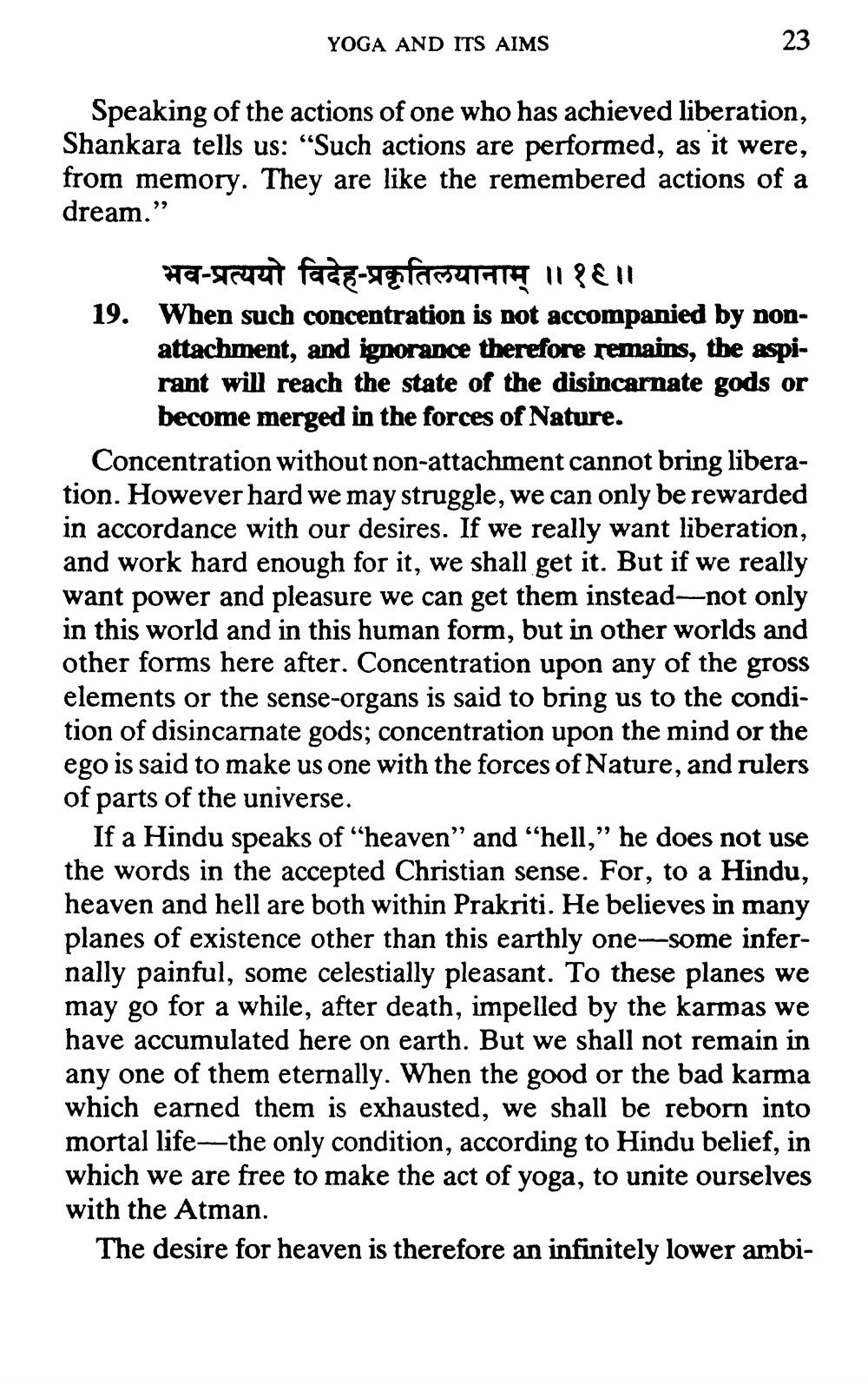________________
YOGA AND ITS AIMS
Speaking of the actions of one who has achieved liberation, Shankara tells us: “Such actions are performed, as it were, from memory. They are like the remembered actions of a dream.”
a-spraut face-tesfasurata 118€ 11 19. When such concentration is not accompanied by non
attachment, and ignorance therefore remains, the aspirant will reach the state of the disincarnate gods or
become merged in the forces of Nature. Concentration without non-attachment cannot bring liberation. However hard we may struggle, we can only be rewarded in accordance with our desires. If we really want liberation, and work hard enough for it, we shall get it. But if we really want power and pleasure we can get them instead- not only in this world and in this human form, but in other worlds and other forms here after. Concentration upon any of the gross elements or the sense-organs is said to bring us to the condition of disincarnate gods; concentration upon the mind or the ego is said to make us one with the forces of Nature, and rulers of parts of the universe.
If a Hindu speaks of "heaven" and "hell,” he does not use the words in the accepted Christian sense. For, to a Hindu, heaven and hell are both within Prakriti. He believes in many planes of existence other than this earthly one---some infernally painful, some celestially pleasant. To these planes we may go for a while, after death, impelled by the karmas we have accumulated here on earth. But we shall not remain in any one of them eternally. When the good or the bad karma which earned them is exhausted, we shall be reborn into mortal life-the only condition, according to Hindu belief, in which we are free to make the act of yoga, to unite ourselves with the Atman.
The desire for heaven is therefore an infinitely lower ambi




